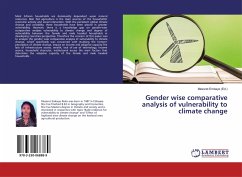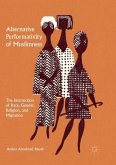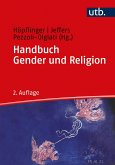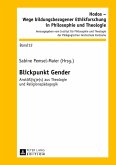Most African households are dominantly dependent upon natural resources. Rain fed agriculture is the main sources of the households' economic activity and social interaction. With the persistent global climate change and variability, these households have been placed in greater vulnerability. However, there is a knowledge gap on gender-wise comparative analysis vulnerability to climate change and degree of vulnerability between the female and male headed households in developing countries perspective. Therefore the concern of this paper was to analyze the gender wise comparative analysis of vulnerability to climate change, which specifically was concerned with studying the farmers' perception of climate change, impact on income and adaptive capacity.The lack of infrastructure access, wealth, lack of use of technology, income source, household character, institutional access the main factors that determine the adaptive capacity of the female and male headed households.
Bitte wählen Sie Ihr Anliegen aus.
Rechnungen
Retourenschein anfordern
Bestellstatus
Storno








